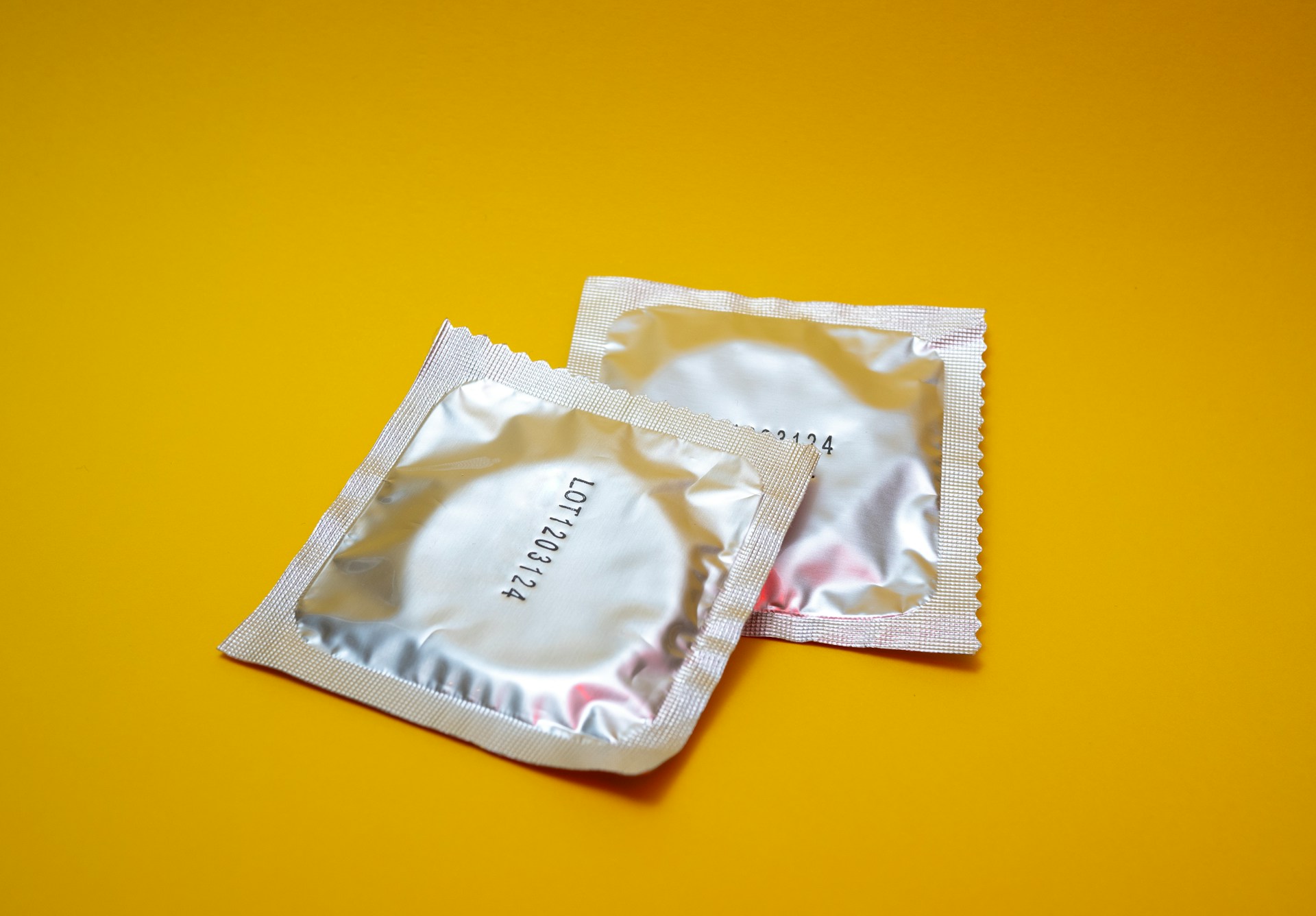How Long Do Condoms Last? Lifespan of Condoms
Posted by Danny Achurch on Aug 21, 2024
When it comes to safeguarding your sexual health, condoms are a reliable and essential tool. However, their effectiveness is closely tied to their condition and shelf life. Many people may not realise that condoms, like most products, have a lifespan. Understanding how long condoms last and the factors that can impact their durability is crucial to ensuring they provide the protection you need. In this article, we'll explore the typical lifespan of condoms, how to store them properly, and answer common questions to help you use them with confidence.

The Typical Lifespan of Condoms
The shelf life of condoms varies depending on the material they are made from. Here's a general guide:
- Latex Condoms: These are the most common type of condoms and typically have a lifespan of 3 to 5 years from the date of manufacture. Latex is a strong material, but it is sensitive to storage conditions.
- Polyurethane Condoms: Made from a type of plastic, polyurethane condoms can also last up to 5 years. They are an excellent alternative for those allergic to latex.
- Lambskin Condoms: These natural membrane condoms have a shorter lifespan, generally around 3 years. While effective at preventing pregnancy, they do not protect against STIs.
Factors That Can Shorten a Condom’s Lifespan
Several factors can reduce the effectiveness of condoms, even before they reach their expiry date:
- Heat Exposure: Storing condoms in a hot environment, such as in a wallet or car glove box, can cause the material to degrade faster, increasing the risk of breakage.
- Humidity: Store condoms in a location that is cool and dry. Excessive heat or humidity can weaken the material, making the condom more likely to break during use. A bedside drawer or a cupboard in your bedroom is an ideal storage spot.
- Sunlight: Direct sunlight and UV rays can degrade the material of condoms, particularly latex. Make sure condoms are stored in a place away from any direct sunlight, such as a drawer or a box.
- Physical Damage: Condoms are delicate and can be easily damaged by sharp objects or rough handling. Always inspect the packaging before use.
Checking Expiry Dates
Always check the expiry date on the condom packaging before use. Using an expired condom significantly increases the risk of it breaking during intercourse, which can lead to unintended pregnancy or the transmission of STIs. The expiration date is typically printed on the individual condom wrapper and the outer box.
Best Practices for Storing Condoms
To maximise the lifespan of your condoms, proper storage is key:
- Cool, Dry Place: Store condoms in a cool, dry place away from direct sunlight. A bedside drawer is an ideal spot.
- Avoid Wallets and Cars: While it might be convenient to carry a condom in your wallet or leave it in your car, these places expose the condom to heat and friction, which can degrade the material over time.
- Check for Damage: Before use, inspect the packaging for any signs of damage. If the wrapper is torn or the condom looks brittle, it’s best to use a new one.
Signs a Condom is No Longer Usable
Even if a condom is within its expiry date, it might still be unusable due to improper storage or handling. Here are some signs to watch out for:
- Brittleness: If the condom feels brittle or stiff when you take it out of the package, it may have degraded and is at risk of breaking during use.
- Discolouration: A change in colour, such as a yellowish tint, can indicate that the condom material has started to break down.
- Stickiness or Unusual Texture: If the condom feels sticky or has an unusual texture, this might be a sign that the material has deteriorated.
- Tears or Holes: Always inspect the condom for any visible tears or holes before use. Even a small puncture can compromise its effectiveness.
Why Expired Condoms Are Risky
Using an expired condom carries significant risks, including:
- Higher Risk of Breakage: As condoms age, the material becomes more susceptible to tears and breakage. An expired condom is far more likely to fail during intercourse.
- Reduced Protection Against STIs and Pregnancy: A compromised condom offers less protection, increasing the chances of unintended pregnancy and the transmission of STIs.
- Potential Allergic Reactions: As the materials in a condom degrade, they might cause irritation or allergic reactions, especially in sensitive individuals.
How to Dispose of Old or Expired Condoms
It's important to dispose of old or expired condoms properly. Here's how:
- Do Not Flush: Never flush condoms down the toilet as they can cause blockages in the plumbing system.
- Wrap and Bin: Wrap the condom in tissue or paper and dispose of it in a bin. This prevents it from creating a mess and reduces environmental impact.
Frequently Asked Questions (FAQs)
1. Can I use an expired condom in an emergency?
It’s strongly advised not to use an expired condom, even in an emergency. Expired condoms are more likely to break or fail, which increases the risk of pregnancy and STIs. Always check the expiry date and keep a fresh supply on hand.
2. What should I do if a condom breaks during use?
If a condom breaks during intercourse, consider emergency contraception (like the morning-after pill) if pregnancy is a concern, and consult with a healthcare professional about STI testing. Using condoms correctly and checking their condition before use can help prevent this situation.
3. Are condoms from vending machines or public places safe?
Condoms purchased from vending machines or public places can be safe, provided they are within their expiry date and have been stored in appropriate conditions. However, it's essential to check the packaging for any damage or signs of wear before use.
4. Can I store condoms in my car?
Storing condoms in your car is not recommended due to the fluctuating temperatures. Heat can cause the material to degrade, leading to a higher risk of the condom breaking. It’s better to store them in a cool, dry place.
Conclusion
Understanding the lifespan of condoms and the factors that influence their effectiveness is essential for safe and reliable use. While most condoms last between three to five years, their longevity can be significantly affected by how they are stored. Always check the expiry date, store your condoms in a cool, dry place, and avoid exposing them to heat or friction. By following these guidelines, you can ensure that your condoms provide the protection you need, helping you maintain your sexual health and peace of mind.


